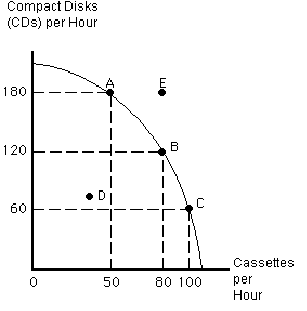Suppose the Inkuyo family invests in the local bottling corporation. Albert, Brad, Carol, and Diana each invest separately. At the end of a very successful quarter, Carol and Brad receive a payment from the corporation equal to 10 percent of their investment. Albert receives 7 percent, but is paid before Carol or Brad. Diana receives 6 percent. If Carol and Brad made riskier investments than
either Albert or Diana, they most likely invested in
a. common stock
b. fixed-yield stocks
c. indexed stocks
d. corporate bonds
e. low-yield dividends
A
You might also like to view...
In the early 1900s, Henry Ford introduced a
a. high-wage policy, and this policy produced many of the effects predicted by efficiency-wage theory. b. high-wage policy, and this policy produced none of the effects predicted by efficiency-wage theory. c. low-wage policy, and this policy produced many of the effects predicted by efficiency-wage theory. d. low-wage policy, and this policy produced none of the effects predicted by efficiency-wage theory.
Figure 2-3

shows the production possibilities frontier for a music processing plant that can produce both compact disks and cassettes. At which point would the plant be under-utilizing its resources?
a.
A
b.
B
c.
C
d.
D
e.
E